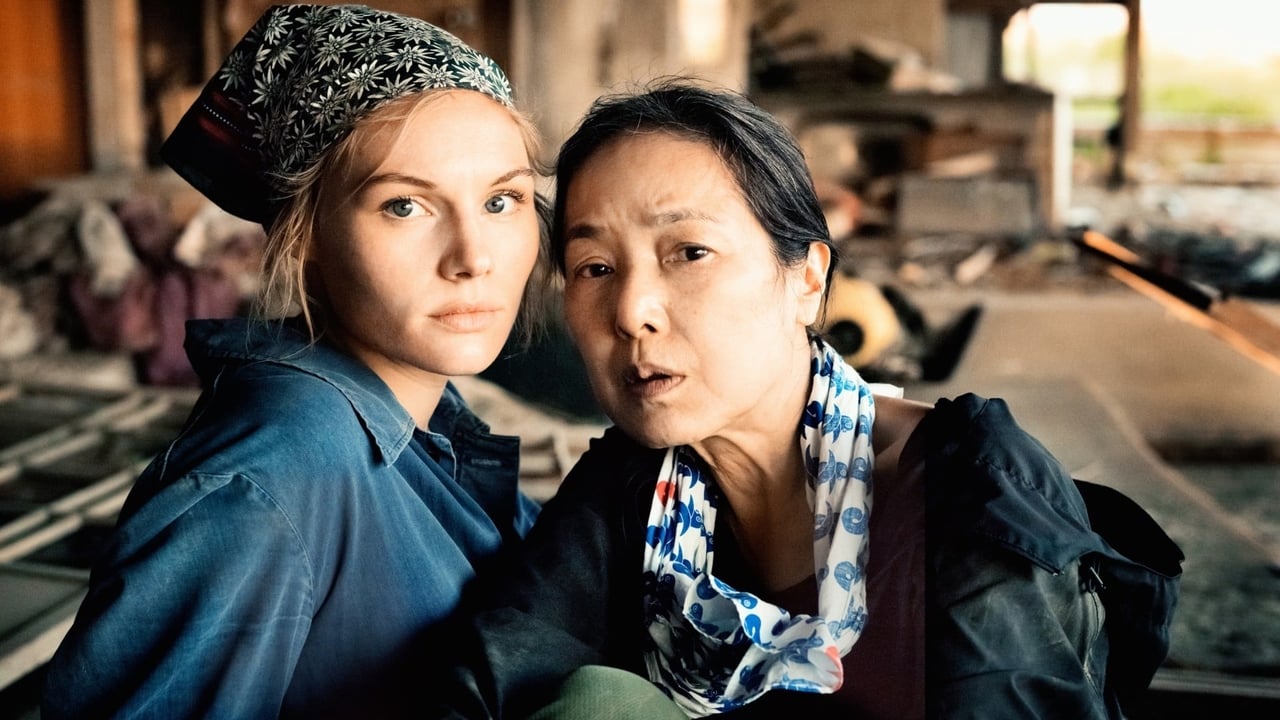



What makes it different from others?
It is a performances centric movie
In truth, there is barely enough story here to make a film.
View MoreThe movie turns out to be a little better than the average. Starting from a romantic formula often seen in the cinema, it ends in the most predictable (and somewhat bland) way.
View MoreI really enjoyed the movie even though i went to see it without knowing what it was about. its art house - if you find black and white movies, experimental aspects (like e.g. when feelings are actually visualized or personified) and the odd feeling of art movies in general annoying and pretentious, you probably wont like this one.if you do enjoy art cinema, you might appreciate this movie. i was skeptical, but i like the feeling, you dont notice the black and white visuals consciously, feelings are well transported, and i love the languages used. its a german movie, the protagonist is and speaks german, the movie is set in fukushima, japan, so people around her speak mostly and often exclusively japanese, and the communication the viewer understands is in broken english. it feels real. the protagonist is quite german, in an authentic way. i loved the movie in the end, i love movies and this is one of my favourites, a tattooed myself a line from the movie. the friends i have watched it with who are hesitant about artsy movies did enjoy themselves definitely.
View MoreI liked the acting of Rosalie Thomass. And I can relate to her decision to venture to a faraway place in order to escape her messed up life. And the fact that she almost gave up, but decided at last moment to stay, to follow through. Kind of pivotal point in the character's life, suggesting that from now on she will take life seriously, she will show grit and not give in to easy temptations (like the one that ruined her almost marriage). Occasionally the character acts awkwardly (like bursting in tears, or not knowing how to sweep the floor). I think this is not unlike real life: people do behave awkwardly sometimes, or change their mind, or change their view of the world; all these apply to both main characters in the movie: the German young woman and the former geisha.
View More"Grüße aus Fukushima" or "Greetings from Fukushima" is a German film from this year written and directed by Doris Dörrie. Lets start with her. She is an incredibly experienced German filmmaker and I have seen and liked many of her works. She also made films in the past about culture clash between Germany and Asia, such as "Kirschblüten - Hanami" or "Erleuchtung garantiert". I liked these two. As a consequence, I was positive I would like her newest work too. Man I was wrong. This film here was such as disappointment. It starts off pretty bad already and becomes worse and worse the longer it runs for its 105 minutes. The film is mostly in English as the German main character does not speak Japanese and the Japanese main character does not speak German. The film is in black-and-white. I am not too big on this creative decision as it does not do a whole lot in the context of the film. The only connection I can somehow make is that the profession of geisha is very ancient already, but the film plays in the now after the Fukushima catastrophe.Lets continue with lead actress Rosalie Thomass. In my opinion, she turns more and more into a German Jennifer Lawrence and coming from me, this is not a positive statement. Both actresses are considered attractive by some, which I do not agree with, even if Thomass looks still better than Lawrence, but both actresses have absolutely zero talent when it comes to subtlety and not much more in terms of acting in general. It isn't helping when they try to convince us how beautiful Thomass is if she constantly sticks her butt into the camera or if the old Japanese woman says she is kinda cute. Thomass' crying scenes were so disastrous and like I wrote she did not manage to portray subtlety on a single occasion here. This is indeed a major problem as the film completely relies on an actress who can deliver in that area with all the plot references to finding harmony. It's a deal breaker in the negative sense.Another major problem here is Dörrie's script. There were very few good moments, far from enough for this runtime. It is tough to decide what the worst moments were. I mentioned the crying scenes earlier, but these sucked due to Thomass and not Dörrie. But what did suck were all the parts about the ghosts in front of the house. The script is so bad, it does not even manage to make ghosts look supernatural. And if two people see the same ghost at the same location at the same time, it is not a ghost. It is nothing supernatural, but probably a bunch of teens playing pranks. But of course, all this doesn't matter here. They were ghosts because Dörrie told us so, no matter how stupid the entire scenario was. Other extremely cringeworthy moments were the whole cat references and the meowing. These were laughably bad and it was so painful to watch how they were trying to make interesting and relevant references in the metaphoric sense, but it went so so wrong. And there is a lot more, which I luckily managed to forget already. The only thing worse in terms of the script could have been if Thomass had become the new geisha with the old one dying. Also the situational comedy went very wrong on almost all occasions.The only somewhat positive statement I can make here is about Kaori Momoi, who elevated the extremely weak material on some occasions. I have no idea what Dörrie did here. Maybe it is true that she can do better with character studies on males than females and she did so successfully in the films I already mentioned and also in "Männer", her possibly most known work. But I actually also liked her work in "Die Friseuse" from a couple years ago, but then again the lead actress there was 10 times better than Thomass here. "Grüße aus Fukushima" is an embarrassment and has nothing on the likes of "Lost in Translation", "Karate Kid" and "Okuribito" that possibly may have inspired Dörrie here. I really hope she does better with her next project again. Finally, a note on the very ending, the statement against nuclear power, oh well... they are good, but they feel also so much fake as the film really apart from two or three minor references does not elaborate on that subject at all, so it felt really fake to include these shots as the last thing we see. I urge you to stay far far away from "Grüße aus Fukushima". The Berlin Film Festival should be ashamed for the awards attention it gave to this garbage movie. Major thumbs-down.
View MoreThe plot of the movie is very straightforward and it is revealed from the lips of the protagonist in the very first minutes of the movie, so don't expect any suspense here. It is about a young German woman who goes to Japan in order to escape her grief, finding some sort of solace in repairing an old woman's hut in Fukushima. Fukushima is, of course, that city that was devastated by a Tsunami and a nuclear meltdown some years back. So, there you go, once again, for the umpteenth time, the same old heart-broken-person-finds-meaning-in-restoring-some-old-garbage narrative... I am sorry for being so negative, but I really expected a little more originality from the acclaimed director Doris Dörrie. What really saves the movie is the beautiful black-and-white cinematography, which is a humble nod to Tarkovsky's "Stalker" or perhaps to some of Bela Tarr's bleak pictures of the Hungarian puszta. This film is visually a gem, but the story provides one cliché after the other. So if you are to enjoy it, I would recommend ignoring the plot, turning a blind eye on the German protagonist's terrible acting, and soaking in the evocative imagery.
View More